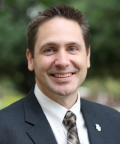Mentoring for Executive Leadership Positions
The American Kinesiology Association’s Leadership Institute is pleased to add a year-long (Fall 2026 – Spring 2027) Mentoring for Executive Leadership Positions program for kinesiologists aspiring to senior leadership positions at the Dean, Provost, and Presidential levels. Participants (Fellows) will learn from renowned kinesiology leaders in higher education, and seasoned mentors both within and outside the program. The goals of the Mentoring for Executive Leadership program include:
- Develop expertise and skill in multiple areas relevant to senior leadership in an academic institution.
- Experience broad leadership training, peer mentoring, and networking across American Kinesiology Association member institutions.
- Contribute new knowledge and new elective practices to benefit all American Kinesiology Association member institutions.
Program Meetings:
The Mentoring for Executive Leadership Positions program includes six (3 – fall semester; 3 – spring semester) virtual meetings to explore topics such as public policy and federal relations, leadership competencies and administrative CVs, board and state relations, personal leadership narratives, shifting demographics, effective fund-raising for higher education, student mobility trends, strategic planning, budgeting principles, faculty retention strategies, building institutional brand, leadership skills as well as the complex challenges and rewards of senior leadership, and the role of professional search firms in leading searches for senior academic leaders. Also discussed will be current threats and opportunities in higher education, such as controversies over diversity, equity, and inclusion programs, reductions in federal funding of institutional research, the expanding role of Artificial Intelligence within higher education, and strategies to prepare for anticipated reductions in student enrollments.
Fellowship Small-Group Projects: Executive Leadership Fellows will explore a critical topic, issue, or challenge in higher education policy and practice that aligns with their interests. Through this project, Fellows will have the opportunity to sharpen their leadership skills and expand their expertise in a way that directly contributes to the advancement of the higher education landscape. The goal of the project is to empower Fellows to make meaningful, lasting contributions that benefit their institutions within and beyond the discipline of Kinesiology. Fellows will present their projects at the AKA Leadership Workshop following the model of the current Leadership Institute Fellows presentations, with opportunities and encouragement to publish in Kinesiology Review or other appropriate outlets.
Mentor/Fellow Meetings and Campus Visits: Mentors and Fellows will conduct individual virtual meetings once per month over the full academic year of the program. The Institute will also include a Host Mentor component where Fellows are provided the opportunity for in-person or virtual visits at the host mentor’s institution to participate in meetings, contribute to the Fellows’ small group projects, and engage with senior leaders and members of the campus community in support of the participant’s learning goals. Costs of these suggested two-day campus visits will be the responsibility of the Fellow or the Fellow’s home institution.
Application Procedures:
The Mentoring for Executive Leadership Positions program includes:
- An introductory virtual meeting in early September,
- Attendance at the annual AKA Leadership Workshop,
- Six webinars with a speaker on key topics, and
- Monthly one-on-one virtual meetings with a senior mentor.
Applications are due April 15, and application requirements are detailed below.
- Cover letter detailing motivation and commitment to the fellowship, and outlining source of funding for the fellowship,
- Curriculum vitae, and
- Three letters of support, including one from a senior academic leader (dean, provost, president) for whom the applicant has worked.
Program Fee:
Once accepted into the institute, it will be the Fellow’s choice to pay $1,000 or $1,500 program fee.
The $1000 program fee includes registration to the Annual Workshop at the conclusion of the Leadership Program that you will present at with other Fellows.
The $1,500 program fee includes registration to two Annual Workshops. (1) the January workshop in the middle of the year-long program and (2) the January workshop at the conclusion of the Leadership Program that you will present at with other Fellows.
Both program fees include the introductory virtual meeting, six webinars on key topics, and monthly one-on-one virtual meetings with a senior mentor.
Not included in the program fee are travel and hotel reservations for an in-person visit to the host mentor’s campus and travel and hotel reservations to the Annual Leadership Workshops.
Directors

David Perrin
University of Utah

Jason Carter
Baylor University


